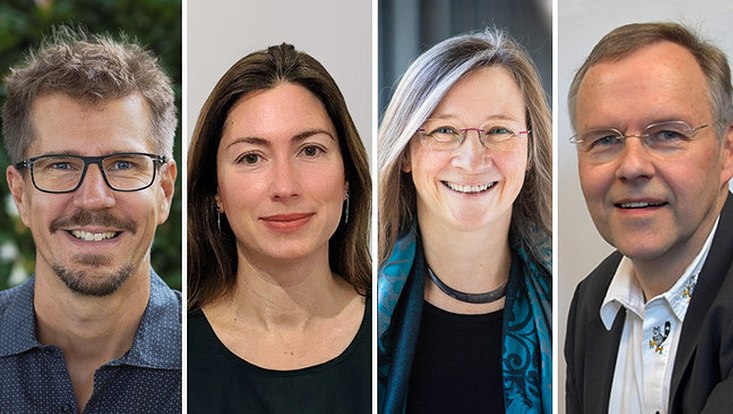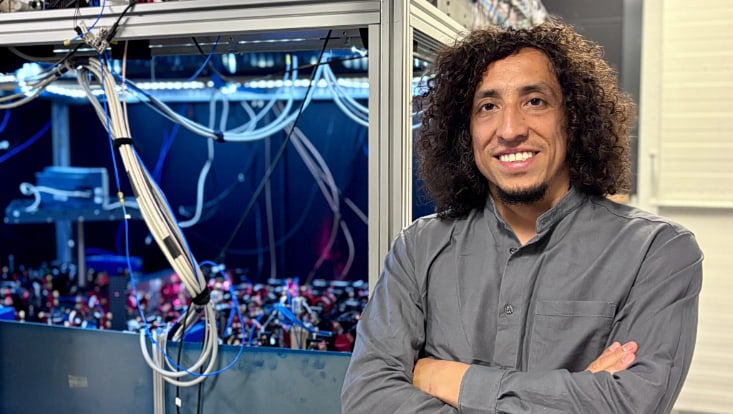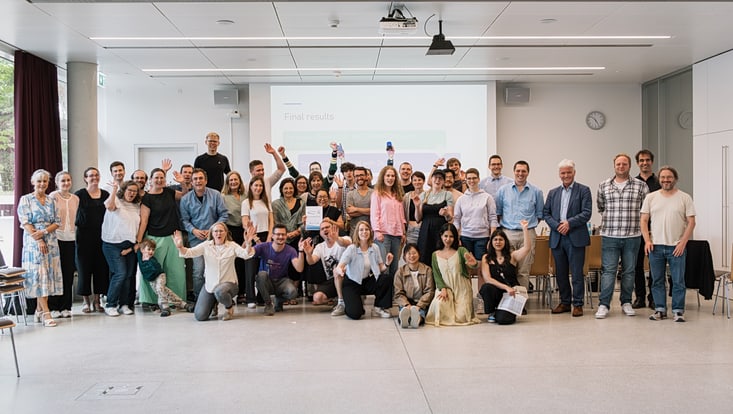Imaging of Matter
€13.8 million to train doctoral researchers
26 April 2024

Photo: privat (2), UHH/Esfandiari, UHH/Knowledge Technology
Four researchers in the Faculty of Mathematics, Informatics and Natural Sciences at Universität Hamburg enjoyed success in the Marie Skłodowska-Curie Actions, among them CUI scientist Dr. Irene Fernandez-Cuesta. Together with their project partners, they will be receiving a total of €13.8 million for Doctoral Networks.
The Doctoral Networks (DN) are one of the Marie Skłodowska-Curie Actions, a program launched in 1997. As part of the DN, transnational doctoral programs with different institutions have enjoyed funding. The goal is to provide structured training to doctoral researchers in newly emerging fields of research, to improve the career prospects of researchers through international, interdisciplinary, and intersectoral mobility, and to strengthen knowledge exchange between the participating institutions.
One of the newly funded projects is “Characterization and Recovery of Bionanoparticles for Vaccine Delivery and Gene Therapy” (CAARE) by Dr Irene Fernandez-Cuesta from the Department of Physics. The scientist is a Young Investigator Group Leader in the Cluster of Excellence “CUI: Advanced Imaging of Matter” and specializes in the investigation of biomolecules using advanced nanotechnology. Bionanoparticles are already being used as vaccines, mRNA vaccines, or in gene therapy. The new biopharmaceuticals will fill an urgent gap in medicine because they could offer treatment options for rare diseases. The effects of the production process on the quality and efficacy of the end products for such treatments and patient safety have yet to be fully clarified, however. Furthermore, there is no specially qualified personnel in the field of bionanoparticles. CAARE aims to close these gaps and will involve the training of 14 doctoral researchers who will gain the latest knowledge in bioprocessing and analysis to clean up bionanoparticles. ACIB GMBH, based in Austria, is coordinating this network.
“Doing a doctorate is a milestone on the path towards an academic career. This makes it all the more important to provide structured support to doctoral researchers in this intensive phase. The Doctoral Networks are a great instrument for focusing on important and promising fields and at the same time to get to know and exploit different perspectives of the research topic. This is why I am so happy for my colleagues, who will be taking part in the 4 new networks,” said Prof. Dr. Tilo Böhmann, vice president for research, doctoral and early career researchers, and information management. Text: UHH newsroom, ed.
Further projects at Universität Hamburg are:
- European Compact Accelerators, Their Applications, and Entrepreneurship (EPACE)—Prof. Dr. Gudrid Moortgat-Pick, Department of Physics
- Harnessing the DNA Damage Response to Improve Plant Tolerance to Heat Stress (HEATDDR)—Prof. Dr. Arp Schnittger, Department of Biology
- Social aWareness for sErvicE roboTs (SWEET)—Prof. Dr. Stefan Wermter, Department of Informatics


